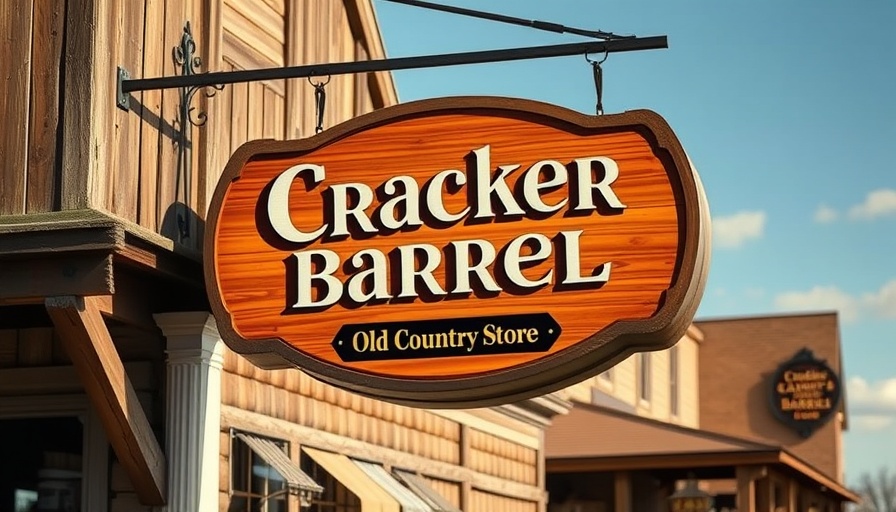
Trademark Drama Unfolds: A Golden Week for Belichick's Girlfriend
The intrigue surrounding trademarks has taken center stage this week with two noteworthy stories: Cracker Barrel's contentious logo situation and Bill Belichick's girlfriend, Jordon Hudson, seeking to trademark the term "Gold Digger." While seemingly unrelated, both cases highlight the evolving landscape of trademark law and the commercial implications tied to branding in popular culture.
Understanding Trademark Basics
Before diving deeper into the peculiarities of these cases, let's clarify what trademarks entail. At their core, trademarks protect brand names and symbols against unauthorized use in business. They serve as a badge of origin and trust, allowing consumers to identify products or services in a marketplace saturated with options.
Cracker Barrel's Logo Controversy: A Lesson in Brand Integrity
The Cracker Barrel case is fascinating due to its historical context. This beloved restaurant chain has built a decades-long reputation, and its branding is instantly recognizable across the country. Recent attempts to modify its logo were met with pushback, revealing the delicate balance between innovation and brand integrity. The discussions highlight a critical issue in trademark law: can a brand evolve while still maintaining its core identity? This situation will likely be analyzed for its implications in branding strategies and legal frameworks in trade.
Jordon Hudson: The "Gold Digger" Trademark Trendsetter?
On the flip side, Jordon Hudson's bid to trademark "Gold Digger" plays into the current popularity of taking ownership of controversial phrases. While some may see this as a tongue-in-cheek response to her public persona, it brings to light the practicality and risks associated with trademarking commonly used expressions. While securing the trademark could provide Hudson opportunities in merchandising, it also spurs conversations about consumer perception and brand image.
The Broader Impacts of Trademark Culture
Both these cases are not merely legal oddities; they point to larger cultural shifts where personal branding intertwines with commercial identity. The ease of trademark filing allows more individuals, especially those in the spotlight, to join the usual branding game. It reflects a time when a catchy phrase or a momentary event can be swiftly turned into a valuable intellectual property.
Future Trends in Trademark Law
As we move forward, expect to see greater fluidity in trademark laws as they attempt to catch up with the rapid evolution of digital and cultural landscapes. Businesses should prepare for stricter scrutiny regarding how they frame their logos and brand phrases, especially in an age where social media can shape perceptions faster than ever. This may lead to new precedents within trademark law and how brands are built and protected.
Challenging Misconceptions Regarding Trademark Ownership
Many people mistakenly believe that common phrases cannot be trademarked at all. This is not entirely accurate. The key condition is the relation of the phrase to the specific goods or services offered. For example, if Hudson’s jewelry and keychains carry with them her unique brand narrative, her ownership of "Gold Digger" could not only be permissible but potentially lucrative.
Your Takeaway from This Trademark Tussle
In both cases, the broader lesson centers on understanding branding and how perceptions of ownership evolve in today’s cultural and digital climate. Whether you are a small business owner or an aspiring entrepreneur, the key lies in leveraging your unique identity to make a lasting impact responsibly. As Hudson seeks to trademark "Gold Digger," consider how your own ideas can be wrapped in engaging narratives for business opportunity.
 Add Row
Add Row  Add
Add 



Write A Comment